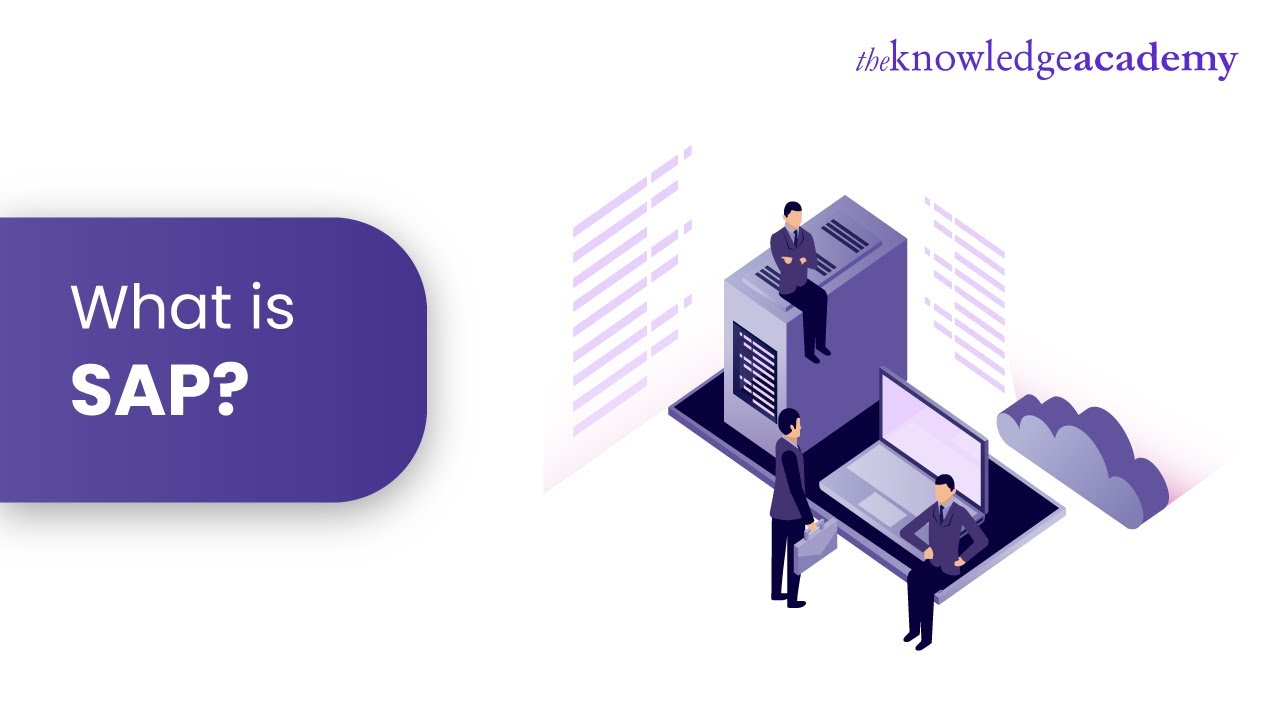What is Enterprise Resource Planning (ERP)?
Summary
TLDRThis video provides an in-depth exploration of Enterprise Resource Planning (ERP) systems, explaining how they integrate core business operations like finance, HR, manufacturing, and supply chain into a unified platform. It covers the different types of ERP systems—on-premise, cloud-based, hybrid, and open-source—and their advantages such as improved accuracy, productivity, and data security. The video also highlights the challenges of ERP implementation, including complexity, high costs, and long deployment times. Overall, ERP systems enable better decision-making, real-time reporting, and efficient cross-department collaboration to enhance business operations.
Takeaways
- 😀 ERP (Enterprise Resource Planning) integrates all core business operations like finance, HR, manufacturing, supply chain, and procurement into one system.
- 😀 ERP provides transparency by tracking logistics, financials, and production, ensuring all departments can access real-time data from one platform.
- 😀 ERP modules focus on specific business areas (e.g., finance, HR, procurement) but work together through a shared database to meet company needs.
- 😀 There are four main types of ERP: on-premise, cloud-based, hybrid, and open-source, each offering different deployment and management features.
- 😀 On-premise ERP is hosted and maintained within a company’s own infrastructure, requiring full responsibility for security, maintenance, and upgrades.
- 😀 Cloud-based ERP offers flexibility with remote access to data and reports, typically managed by third parties, with options for single-tenant or multi-tenant models.
- 😀 A hybrid ERP system combines on-premise and cloud-based solutions, allowing a business to maintain core systems on-site while using cloud solutions for regional offices.
- 😀 Open-source ERP is often free or low-cost, ideal for small businesses, but requires technical expertise to configure and develop.
- 😀 ERP improves business accuracy and productivity by automating processes, reducing manual effort, and allowing departments to work more efficiently together.
- 😀 ERP enhances reporting capabilities, providing real-time data for better planning, budgeting, forecasting, and decision-making for stakeholders.
Q & A
What is Enterprise Resource Planning (ERP)?
-Enterprise Resource Planning (ERP) is a software platform that integrates core business operations, such as finance, HR, manufacturing, supply chain, procurement, and services, into a unified system to streamline processes and improve efficiency.
How does ERP provide transparency in business operations?
-ERP provides transparency by tracking and managing logistics, financials, and production aspects in real-time. It collects data from various departments and makes it accessible to authorized users, aiding in informed decision-making.
What are the key components of an ERP system?
-The key components of an ERP system are modules that focus on different business areas, such as finance, HR, accounting, procurement, sales, and logistics. These modules work together using a shared database to meet the company's operational needs.
What is the difference between on-premise ERP and cloud-based ERP?
-On-premise ERP is hosted and maintained on the company's own servers and infrastructure, while cloud-based ERP is hosted on remote servers and managed by a third-party provider, offering flexibility and accessibility from anywhere with an internet connection.
What is a hybrid ERP system?
-A hybrid ERP system combines elements of on-premise and cloud-based deployments. It allows a company to maintain an on-premise ERP system at its headquarters while using cloud-based systems for remote offices or subsidiaries.
What are the advantages of using an ERP system in a business?
-The advantages of ERP include improved accuracy and productivity through integration and automation, better reporting with real-time data, increased efficiency in routine tasks, enhanced cross-department collaboration, and strong data security for sensitive information.
What is the significance of data security in ERP systems?
-Data security is crucial in ERP systems because they handle sensitive company information. Cloud ERP systems offer advanced security protocols to protect against cyber threats, ensuring that critical data is stored securely and is accessible only to authorized users.
What are some challenges businesses face when implementing an ERP system?
-Challenges include the complexity of the system, the risk of failure if business processes and data requirements are not properly understood, the high cost of infrastructure and deployment, and the long time required for full system implementation and employee training.
How does ERP improve cross-department collaboration?
-ERP improves cross-department collaboration by connecting various departments through a unified system, ensuring that data is shared seamlessly and communication between teams is more effective, which helps in reducing errors and improving workflow.
What are the potential disadvantages of using ERP systems?
-Disadvantages of ERP systems include their complexity, the risk of failure during implementation, high costs for on-premise deployments, long deployment periods, and the potential for the system to be slow to adapt to dynamic business changes.
Outlines

This section is available to paid users only. Please upgrade to access this part.
Upgrade NowMindmap

This section is available to paid users only. Please upgrade to access this part.
Upgrade NowKeywords

This section is available to paid users only. Please upgrade to access this part.
Upgrade NowHighlights

This section is available to paid users only. Please upgrade to access this part.
Upgrade NowTranscripts

This section is available to paid users only. Please upgrade to access this part.
Upgrade NowBrowse More Related Video

What is an ERP? The Magic System Powering Supply Chain Success | ERP Explained

Enterprise Resource Planning (ERP) in 15 minutes

Logística Integrada - u03t02

What Is SAP | SAP Training | SAP Explained In 4 Minutes | Learn SAP | The Knowledge Academy

Penjelasan Mengenai ERP dan Cara Penggunan Aplikasi Odoo.com

Mencapai Keunggulan Operasional Dan Kedekatan Dengan Pelanggan : Aplikasi Perusahaan
5.0 / 5 (0 votes)